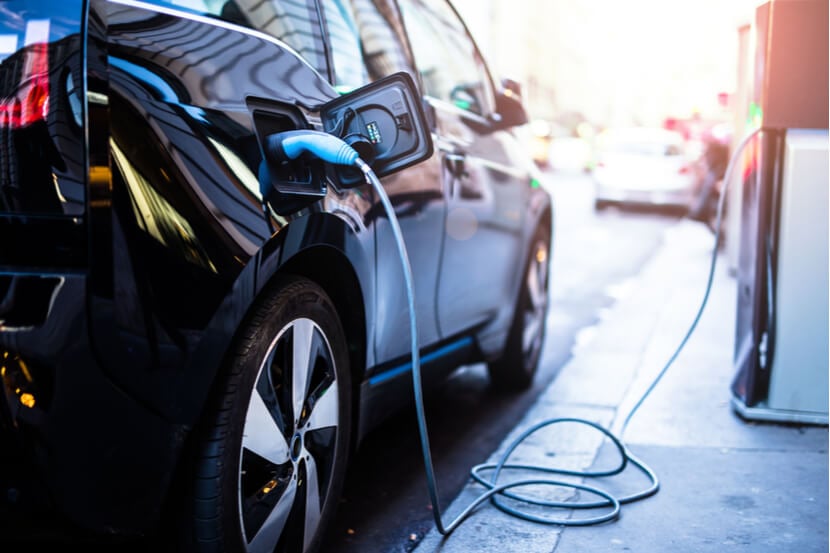Thinking of making the switch to an electric vehicle? Lots more drivers are doing it, in fact, 19.6% of cars sold in the UK in 2024 were EVs. And this could only rise with the new petrol and diesel car ban just 5 years away.
But those drivers considering switching are concerned - many feel that public charging infrastructure isn't keeping up with demand.
Nearly 2 in 5 (38%) say there isn’t good charger availability in their local area, and more than 10,600 requests were made to local councils for better access to public charging.
The price of EVs is another blocker for lots of motorists, with the average price in 2025 hitting £49,790. But a new government grant could help reduce this price.
In this guide, we'll cover all things EV to help you decide if getting one is right for you.

Is access to EV charging points improving?
According to our research, there are currently 28,734 council-owned public EV chargers across the UK. That number is set to almost double, with a further 24,687 chargers expected to be installed within the next 2 years. This would bring the total to over 50,000 by 2027.
So access could improve, but as it stands today, existing EV owners are facing challenges at the charger. Almost half (45%) have experienced issues such as long wait times or chargers being fully occupied, while 38% have dealt with slow charging speeds.
Others report difficulties with payment systems (35%) and being blocked by non-EV vehicles or cars not actively charging in bays (31%).
While progress is being made, there’s still work to be done to make EV charging truly accessible, reliable, and convenient across the UK.
Fed up of guessing where your nearest charger is?
We can help. Find your nearest EV charging station with our EV charging point map. You can also find rapid, fast, and slow chargers too.
Find your nearest charging point
Electric car range: How far can they go?
This depends on the car you buy. Early electric cars would struggle to do 30-40 miles on a single charge. Now there are models that do several times that distance.
In fact, the Society of Motor Manufacturers and Traders (SMMT) found that the average electric range for new EVs launched in 2023 was nearly 300 miles - that's enough to travel from Exeter to Leeds. That's compared to 210 miles in 2020.
High-end cars are capable of some of the furthest ranges, but more everyday cars can now go much further, too.
How much does it cost to charge an electric car?
According to our EV zap map, this is what it costs to charge different vehicles assuming the price per kWh is 34p. We've also found what it would cost to charge these models at fast and rapid charge points. These charge more per kWh:
| Vehicle | Useable battery (kW)++ | kWh cost | Cost to Charge | Fast charge cost | Rapid charge cost |
|---|---|---|---|---|---|
|
Kia Niro
|
64.8
|
£.034
|
£22
|
£36.94
|
£44.71
|
|
Tesla 3
|
57.5
|
£0.34
|
£19.55
|
£22.80
|
£27.60
|
|
VW ID3
|
58
|
£0.34
|
£19.73
|
£33.06
|
£40.02
|
|
Renault Zoe
|
52
|
£0.34
|
£17.68
|
£29.64
|
£35.88
|
With an electric car, the size of the battery (in kWh) multiplied by the cost of charging per kWh which gives you the cost of fully charging your vehicle.
How long does it take to charge an electric car?
There are 3 charging speeds – slow, fast and rapid.
- Slow: A charge overnight at home or during the day at work takes between 8 and 10 hours.
- Fast: A charge somewhere like a car park or supermarket can recharge a battery in 3 or 4 hours.
- Rapid: If you can find a rapid charging point, it should take between 30 minutes to an hour, although not all electric cars have the capability for rapid charging.
You can charge your electric car either at home, at work or using a public charging point. Such as a service station.
Is access to EV charging points improving?
If you'd like to know where your nearest EV charging station is, our EV charging point map could help you out.
You might see more charging points appearing on the map too. According to GOV.UK, drivers could have access to more than 1,000 new electric car charge points, through a £20 million government fund. There are plans for these charge points to be built across 9 local authorities across England such as Durham, Nottinghamshire, and Suffolk.
This scheme should help EV owners who don't have access to a private driveway where they can install a home charger. It should also help reassure motorists who are worried about running out of charge when driving long distances.
According to the Policy Exchange committee, 35,000 charge points need to be installed in the 2020s if the UK is going to be ready for the EV switch in 2030. This is 5 times faster than the current rate.
Are EV charging points accessible for wheelchair users?
Alongside the Department for Transport and the British Standards Institute (BSI), Motability says they plan to develop accessibility standards for EV charging points across the UK this year.
The guidance should help the EV industry solve the challenges raised by Motability. It should also give wheelchair users guidance on which EV charging points are:
- Fully accessible
- Partially accessible
- Not accessible
This should help drivers decide which charging points are suitable for their needs.
Barry Le Grys, Chief Executive Officer at Motability, said:
“There is a risk that disabled people are left behind as the UK’s transition to electric vehicles approaches, and Motability wants to ensure that this does not happen.
“We welcome the interest from government in our research on electric vehicle charging and accessibility and we are excited about our partnership with the Office for Zero Emission Vehicles (OZEV) to further this work.
“We look forward to working together to create world-leading accessibility standards and to support the UK’s commitment to achieving zero emissions. Motability looks forward to a future where electric vehicle charging is inclusive for all.”
How long do electric car batteries last?
Most manufacturers give an 8-year or a 100,000-mile warranty on their batteries. Most batteries in electric cars today are designed to last for at least 12 years – and could still be performing well for up to 2 decades.
Batteries in electric cars gradually become less efficient over time. In much the same way that batteries in mobile phones need more regular charging after they’ve been in use for a few years.
But the technology is improving all the time – and even after a decade of use, they should still give your electric car reliable service.
You could also lease your battery. This means that should it go wrong or start losing its charge, you can easily get it replaced as part of your leasing contract. It also reduces the initial price of the car, although you'd have to pay an ongoing monthly fee for the lease of the battery.
How much do electric cars cost?
The average price of an electric car in 2025 is hitting £49,790. But there are some cheaper models from £14,995.
From April 2025, EV owners have to pay tax. EV owners didn't have to pay this before, it was a big perk of owning an electric car.
But it's not all bad, from 16 July 2025, car manufacturers can apply for an electric car grant. This means people could save up to £3,750 when they upgrade or switch to an electric car that costs £37,000 or under.
How much is electric car insurance?
Electric car insurance is likely to cost a bit more than insuring a petrol car.
This is partly because electric cars are more expensive to buy. That increases the potential payout an insurer would need to make if your car was written off.
They can also have specialist mechanics, and parts can be harder to source. But as EVs become more common, this might be a thing of the past.
You should be able to insure your electric car with most motor insurance providers, but you might want to consider a specialist insurance policy.
Specialist policies can include electric car-specific features, like:
- Getting you to the nearest charging point if your battery dies.
- Specific cover for damage to your battery.
- Cover for things such as the charging cables, boxes, and adaptors that are vital when it comes to keeping your electric car on the road.
As with all car insurance, the best thing you can do is shop around for the best deal.
What are the pros and cons of buying an electric car?
Pros
-
Low running costs: Charging is cheaper than using fossil fuels, and electric cars can be cheaper to service because there are fewer moving parts. According to GOV.UK, you could save up to £700 a year with an EV.
- Better for the planet: Moving to electric from petrol and diesel is a key way to reduce emissions that are harmful to the environment.
-
Great for shorter journeys: If you make short trips into town and back or a 15-mile commute twice a day, an electric car could be a perfect option for you.
Cons
- They cost more to buy: You can expect to pay more for an electric car.
- Journey planning: Until electric cars reach the range of petrol cars, you need to plan your journeys so you can be sure you're near a charging point when you need to refuel.
- Charging at home: This can be an issue, depending on where you live. If you live halfway up a tower block, it's harder to install a charging point than if you have a drive or a garage.
- Not great if you're frequently doing long trips: As we mentioned, EVs can reach up to 300 miles on a single charge. So if you regularly go on journeys of several hundred miles, you might want to wait a little longer or opt for the halfway house of a hybrid car.
EV pay-per-mile tax is coming in 2028
EV tax is due to change in 2028. Not sure what this means for you? Pop your mileage into our free EV pay-per-mile tax checker and get your estimate in seconds.
Methodology
Unless otherwise stated, all research was carried out by OnePoll on behalf of Confused.com of 2,000 UK drivers. This was conducted between 24th and 25th June 2025.
In February 2025, Confused.com issued a Freedom of Information request, requesting the following information from UK councils:
How many public electric car charging points currently exist in your council area that you either own and/or manage? Please break this down by the type of charger they are.
How many new public electric car charging points are you planning on installing in your council area in the next 2 years that you will own and/or manage? Please break this down by the type of charger they will be.
How many requests for more public electric car charging points have you received from residents in your council area since 1.1.24?
https://www.smmt.co.uk/vehicle-data/electric-vehicle-registrations/:
There’s currently 1 council-owned public charger per 36 EV drivers in the UK. That’s according to the Society of Motoring Manufacturers (SMMT). As of July 2025, there are 1,042,219 electric car registrations in the UK year-to-date, and councils have shared there are currently 28,734 council-owned chargers in the UK.
Calculation: 1,042,219 (EV cars) divided by 28,734 (number of council owned chargers) = 36.27 – means there is 1 council- owned public charger per 36 EV drivers in the UK

